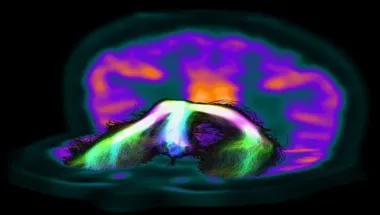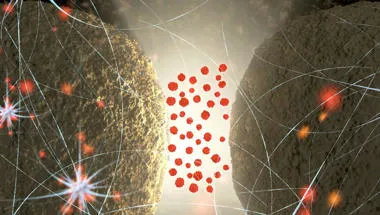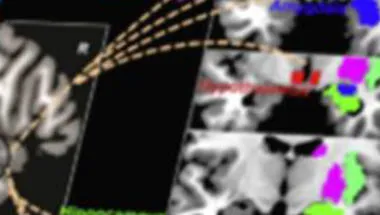
Professor Gareth Barker PhD
Professor of Magnetic Resonance Physics
Research interests
- Neuroscience
- Psychiatry
- Psychology
Contact details
Biography
I am a fellow of the International Society for Magnetic Resonance in Medicine and have worked on the applications of magnetic resonance imaging (MRI) to neurological and psychological disorders for over 30 years. My work focuses on the development and optimisation of quantitative MRI techniques such as relaxation time measurements, magnetisation transfer and diffusion tensor imaging, which provide numerical results that can be directly compared between individuals and over time. Recently, my interests have centred on extending these approaches to newly developed near-silent acquisition methods. I am heavily involved in supporting PhD students, chairing the committee monitoring Neuroscience students’ progress, and acting as deputy Associate Dean for Doctoral Studies at the IoPPN. I have a strong interest in research ethics and am vice-chair of the College Research Ethics Committee.
Please see my Research Staff Profile for more detail.
Key Publications:
- Zhang et al., 2020. The Consortium on Vulnerability to Externalizing Disorders and Addictions (c-VEDA): an accelerated longitudinal cohort of children and adolescents in India. Molecular Psychiatry.
- Alegria et al., 2017. Real-time fMRI neurofeedback in adolescents with attention deficit hyperactivity disorder. Human Brain Mapping.
- Wastling et al., 2014. Designing hyperbolic secant excitation pulses to reduce signal dropout in gradient-echo echo-planar imaging. Magnetic Resonance in Medicine.
- Schumann et al., 2010. The IMAGEN study: reinforcement-related behaviour in normal brain function and psychopathology. Molecular Psychiatry.
- Amaro et al., 2006. Study design in fMRI: basic principles. Brain Cognition.
Key Collaborators:
- Dr Shannon Kolind, University of British Collumbia
- Dr Eml Ljungberg, King's College London
- Professor Gunter Schumann, King's College London
- Professor Mark Richardson, King's College London
Research

Wellcome EPSRC Centre for Medical Engineering
The Centre focuses on the science and engineering of medical imaging. The UK is strong in medical imaging, with the Centre hosting the largest research group in this area in Europe.The Centre combines fundamental research in engineering, physics, mathematics, computing, and chemistry with medicine and biomedical research. The 400 inter-disciplinary scientists in the Centre are transforming the diagnosis and treatment of patients, and will deliver exceptional research.

STRATA - Schizophrenia: Treatment Resistance and Therapeutic Advances
People with schizophrenia suffer from a range of symptoms including hallucinations (such as hearing voices), delusions (false beliefs) and thought disorder (thoughts not flowing in a logical way).

Neurocognitive signatures predicting risk of recurrent depression (NESPRED) study
After recovering from depression, it is currently difficult to advise on the risk of future recurring episodes. The aim of this study is to find better ways to predict the risk of future depressive episodes for a particular person
Features
Successful re-launch of the PGR Student Showcase
The IoPPN PGR Student Showcase relaunched recently, attracting more than 100 attendees and featuring power pitches and poster presentations by the PhD/MD(Res)...

Research

Wellcome EPSRC Centre for Medical Engineering
The Centre focuses on the science and engineering of medical imaging. The UK is strong in medical imaging, with the Centre hosting the largest research group in this area in Europe.The Centre combines fundamental research in engineering, physics, mathematics, computing, and chemistry with medicine and biomedical research. The 400 inter-disciplinary scientists in the Centre are transforming the diagnosis and treatment of patients, and will deliver exceptional research.

STRATA - Schizophrenia: Treatment Resistance and Therapeutic Advances
People with schizophrenia suffer from a range of symptoms including hallucinations (such as hearing voices), delusions (false beliefs) and thought disorder (thoughts not flowing in a logical way).

Neurocognitive signatures predicting risk of recurrent depression (NESPRED) study
After recovering from depression, it is currently difficult to advise on the risk of future recurring episodes. The aim of this study is to find better ways to predict the risk of future depressive episodes for a particular person
Features
Successful re-launch of the PGR Student Showcase
The IoPPN PGR Student Showcase relaunched recently, attracting more than 100 attendees and featuring power pitches and poster presentations by the PhD/MD(Res)...

